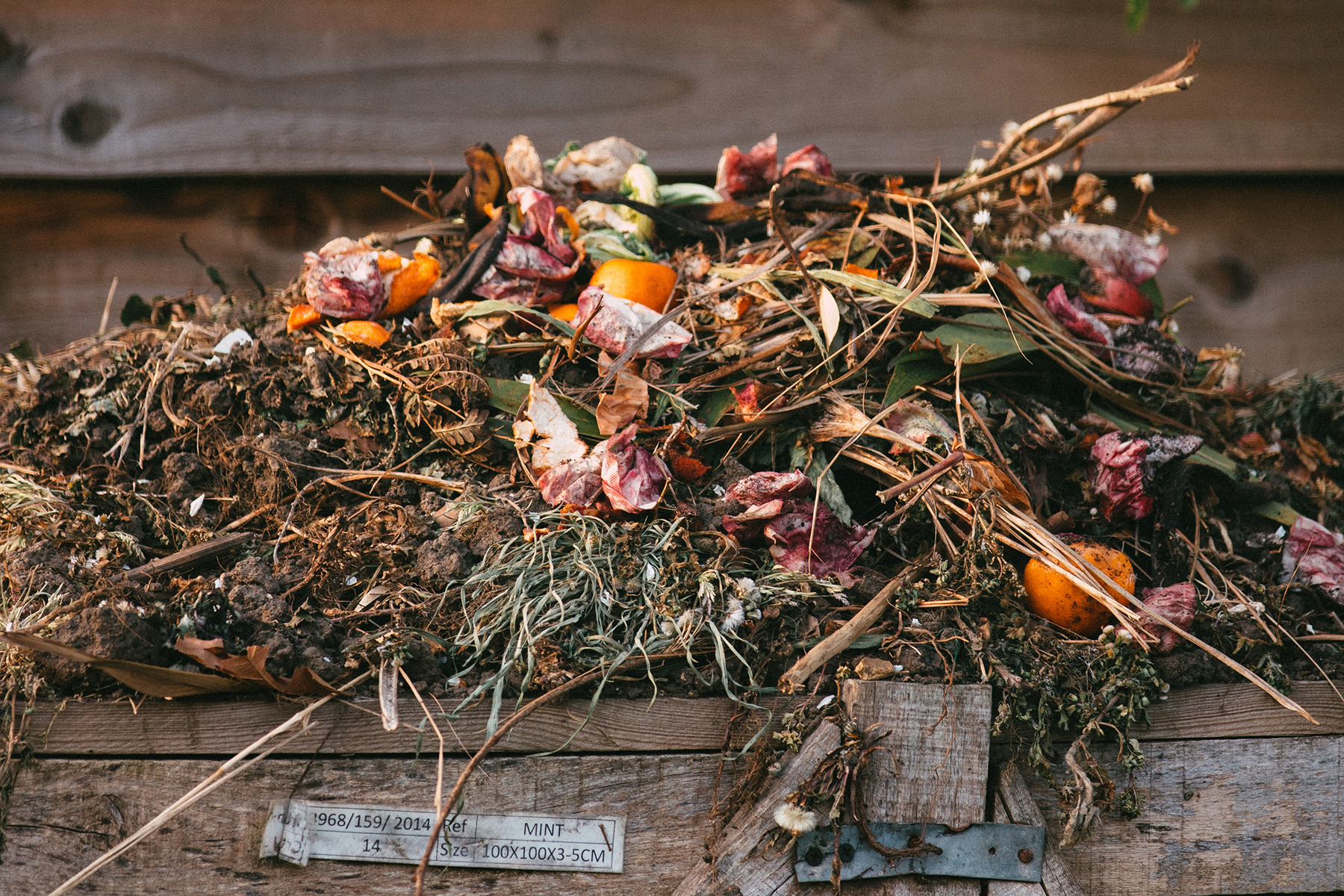What does it mean to cultivate a place where things can thrive amid hardship—not just in my garden, but in my life?
![]()
As I searched for a gardening-centric answer to that question (and, I admit, an angle for this article), my mind immediately offered one possibility: “Compost!” And why not? The rich, smelly stuff was already on my mind, thanks to my parents’ recent construction of our own compost bin. As time passed, however, I grew uncertain about the idea—not because the new bin had ceased to fascinate me, but because we haven’t been able to spend nearly as much time in our garden as we would’ve liked.
At least we have a good excuse. Even in a normal year, Louisiana is the soggiest state in the American mainland. Over the first six months of 2021, however, we got over four feet of rain. Only 1989 surpasses this year as Louisiana’s wettest on record. Two of our tomato plants drowned, the potatoes were devoured by fire ants seeking higher ground, and every time my mom and I tried to do garden maintenance, our boots sank deep into mud.
No sooner did the rain stop than the infamous summer heat of the Deep South set in. I did my best to water the plants as soon as the sun went down, but it’s hard to spend quality time outdoors when you’re under a heat advisory every day. As a result, the garden simply ran away from us. Weeds choked out the herbs; the tomato vines spilled out of their beds; the zinnias toppled under their own weight. And let’s not forget those pesky fire ants, who obviously decided that if we weren’t going to spend time in the garden, they would make a home out of it.
Can you hear my long, heavy sigh? The new compost bin may be impressive, but it’s hardly our main concern right now. We can’t even use its contents until we get this garden under control!
![]()
Getting the garden to thrive this year has been hard enough but getting myself to thrive has been just as difficult, if not more so. A nasty injury, my ongoing recovery, and the constant battle against anger and cynicism every time I scroll through my news feeds have left me often times dispirited.
But I’ve also been disappointed with myself. I once had such motivation to spend quality time with the Lord before dawn, to read deep and thought-provoking books, and to manage my social media well. These days, just staying focused during my quiet time has been a battle. Theological tomes hold little appeal, and choosing a novel over Twitter often feels as difficult as pulling weeds.
Of course, there are seasons where we must show ourselves the same grace we’d show a struggling friend. I’m positive that 2021 has been one of those seasons for me—and praise God, I can see where He’s used it to prune and refine me. I’ve had to confess my own frantic attempts at self-sufficiency, remind myself that He loves me even in my weakness, and believe that He will strengthen me in His own good time.
Still, the question I posed at the beginning of this article haunts me. How do I deliberately create conditions where my garden and I can heal and thrive amid obstacles and suffering…without making myself crazy with expectations I simply can’t live up to?
Recognizing that I can’t live up to those expectations seems like a good place to begin. So let me admit it now: this will not be the year where I transform into a 1940s Victory Garden poster girl, her arms full to overflowing with Brandywine tomatoes and heirloom lettuces. It also won’t be the year where I tackle the latter half of Teresa of Avila’s The Interior Castle. It may not even be the year where I approach my morning devotions with my old joyful zeal.
But I also know this: autumn still holds promise, both for my soul and the garden.
In much of the United States, autumn means it’s nearly time to put the gardens to bed for winter. Not so in the Deep South. Here, autumn means the boiling heat is about to dial down; if we’re lucky, the rain will slack off, too. We can venture out again without fear of being either desiccated or drenched. We can plant and tend to squashes, pumpkins, broccoli, potatoes, and cabbage—and this time, their chances of survival are delightfully high!
None of this abundance will come, however, if we don’t cultivate a place for it. We need to be able to get into it, to actually see what it is we’ve planted! We couldn’t avoid or prevent the wilderness, but now it’s time to tame it. We must choose things that bring life, not chaos, even if those choices aren’t always easy.
My mom and I finally gained the upper hand in early August. We ripped out the weeds, cleared unruly vines, and declared war on the ants. As a result, a couple of our raised beds were able to lie empty and soak up the sun for the first time in weeks. But thanks to the tidied beds and pathways, we were also able to breathe a sigh of relief over our eggplants, peppers, tomatoes, and corn. Not only had they clung to life during those hard, hot, wet weeks, but they still bore fruit!
I like to think that my consistent watering every evening may have had something to do with that. If it did, then it gives me hope for the garden of my own soul as I try to tame the wilderness there, too. I may not clear it in one fell swoop. As Sally Clarkson reminds us in her book Own Your Life,
“The seeds of our lives are sown in a fallen garden. [1]”
But she also points out just a few paragraphs later that “[w]hatever you practice, cherish, believe, habitually think, and speak every day is what you are becoming.” [Emphasis mine.] It’s a quiet, daily practice, a cultivation of the heart that happens over seasons of light as well as darkness.
So do we have grace with ourselves? Absolutely. We love our suffering gardens as well as our battered souls, and we prayerfully wait for better, kinder days. But when we clear the wilderness, we don’t stop there. We replace it. Just as we lay down rich, nourishing compost in our gardens, we intentionally fill our hearts with the Lord’s goodness, truth, and beauty. And once that’s done, then we can plant new seeds and watch as autumn life grows from soil cultivated in kindness and hope.
![]()
[1] Clarkson, Sally. Own Your Life. Tyndale Momentum, 2014.
The featured image is courtesy of Edward Howell.
We are grateful for Edward’s skill and generosity!
Maribeth Barber Albritton is an author, wife, mother, and small business owner. She serves as Director of Media and Communications for The Cultivating Project and contributes to the production of Cultivating Magazine’s print editions. She also works as an Executive Assistant at The C.S. Lewis Foundation.
Maribeth has a deep love for history, literature, and film. These keen interests inspired her debut science-fiction novel, Operation Lionhearted, as well as her blog, A Writer’s Tale, where she’s written a number of book and movie reviews from the angle of the Christian imagination.
Maribeth, her pastor-husband Casey, and their daughter Molly live in rural Mississippi in a red-brick manse they’ve affectionately named “Crickhollow.”
Leave a Reply
A Field Guide to Cultivating ~ Essentials to Cultivating a Whole Life, Rooted in Christ, and Flourishing in Fellowship
Enjoy our gift to you as our Welcome to Cultivating! Discover the purpose of The Cultivating Project, and how you might find a "What, you too?" experience here with this fellowship of makers!


Add a comment
0 Comments